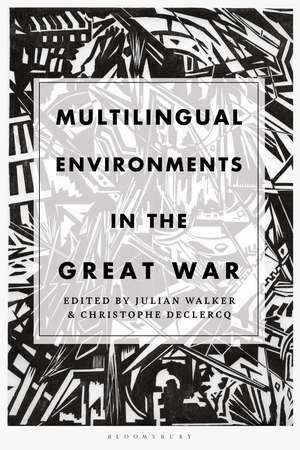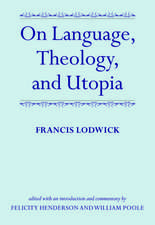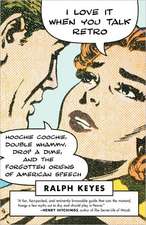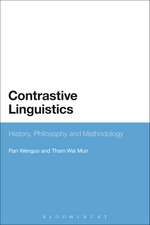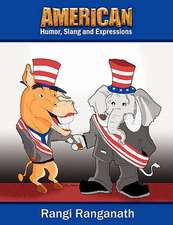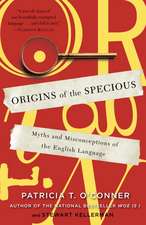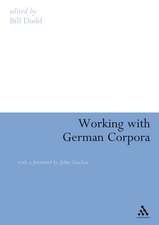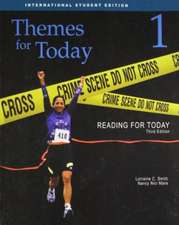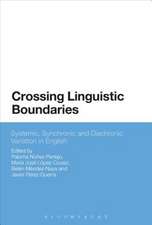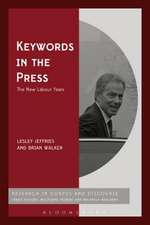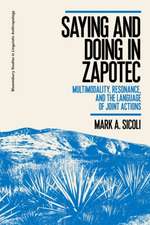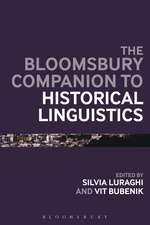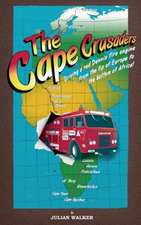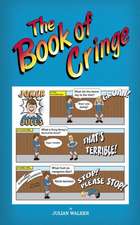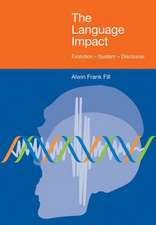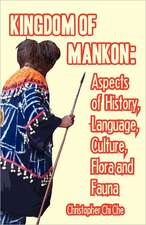Multilingual Environments in the Great War
Editat de Julian Walker, Dr Christophe Declercqen Limba Engleză Paperback – 22 mar 2023
| Toate formatele și edițiile | Preț | Express |
|---|---|---|
| Paperback (1) | 192.55 lei 43-57 zile | +72.81 lei 6-12 zile |
| Bloomsbury Publishing – 22 mar 2023 | 192.55 lei 43-57 zile | +72.81 lei 6-12 zile |
| Hardback (1) | 657.87 lei 43-57 zile | |
| Bloomsbury Publishing – 21 apr 2021 | 657.87 lei 43-57 zile |
Preț: 192.55 lei
Preț vechi: 250.01 lei
-23% Nou
Puncte Express: 289
Preț estimativ în valută:
36.86€ • 40.05$ • 30.98£
36.86€ • 40.05$ • 30.98£
Carte tipărită la comandă
Livrare economică 21 aprilie-05 mai
Livrare express 15-21 martie pentru 82.80 lei
Preluare comenzi: 021 569.72.76
Specificații
ISBN-13: 9781350233188
ISBN-10: 1350233188
Pagini: 288
Dimensiuni: 156 x 234 x 20 mm
Greutate: 0.4 kg
Editura: Bloomsbury Publishing
Colecția Bloomsbury Academic
Locul publicării:London, United Kingdom
ISBN-10: 1350233188
Pagini: 288
Dimensiuni: 156 x 234 x 20 mm
Greutate: 0.4 kg
Editura: Bloomsbury Publishing
Colecția Bloomsbury Academic
Locul publicării:London, United Kingdom
Caracteristici
Goes beyond previously published material to explore less expected areas of language use during the conflict and develop a transnational viewpoint of the experience of war
Notă biografică
Julian Walker is an author working on First World War language discourse, and is an Associate Lecturer at the University of the Arts London, UK.Christophe Declercq is Senior Lecturer in Translation Studies at the Centre for Translation Studies, University College London, UK and Lecturer in Translation at KU Leuven, Belgium.
Cuprins
Preface Part I. Multilingual EnvironmentsIntroduction, Hillary Briffa1. Wilhelm Doegen and the Königlich-Preussische Phonographische Kommission: Translation, Phonetics and Phonography among the Italian Prisoners in the German POW Camps of the Great War, Stefano Bannò 2. The French Army and Russian Interpreting and Translating in France and Macedonia During the First World War, Gwendal Piégais3. Language in East Africa During the First World War, Anne Samson4. Pioneers of Internationalism: Esperanto and the First World War, Javier Alcalde5. Scenarios and Projections in First World War Phrasebooks, Julian Walker Part II. Language and IdentityIntroduction, Constance Ruzich6. "O Belo Dizem Que é Beau": The Choice of Poetic Language, Performed Identities and Imagined Communities in the First World War, Julia Ribeiro S.C. Thomaz7. 'Authentic Histories' and Racial Insults: Memoirs on African-American Soldiers in the First World War, Chris Kempshall8. Romanian Writers who Fought in the First World War and How the "Great War" Shaped their Works, Cristina Ileana Ilea (Rogojina)9. The 1915 German-Estonian Phrasebook as an Interface of German-Estonian Language Contact and a Vehicle for Annexationist Propaganda, Mart Kuldkepp10. Politics of Words: Language and Loyalty of Czech-Speaking Soldiers in the Austro-Hungarian Army, Jirí Hutecka Part III. Non-CombatantsIntroduction, Jane Potter 11. Khvosty, Meshochniki and 'Internal Germans': The Transformation of everyday life Language in Russia During the First World War, Iaroslav Golubinov12. 'Berlitz Krieg': The Development of a Modern Language Pedagogy at Ruhleben Civilian Internment Camp, Jamie Calladine13. Translating Charity for Allied Aliens: Belgian Charity Books in Britain, Christophe Declercq Part IV. Post-WarIntroduction, Marguerite Helmers14. Tracing the Afterlife of War Words in Australia, 1919-1929, Amanda Laugesen and Véronique Duché 15. The Language of Battlefield Guidebooks, 1919-1925, Mark Connelly16. The Mint by 352087 A/C Ross, Jonathon Green17. When Words Kill.: Armenians, Jews and the Nature of Genocidal Discourse, Fabian Van Samang18. Creating The International Mind: The Language of Internationalism and the Battle for Global Public Opinion (1912-1938), Steve Witt Index
Recenzii
This is a fascinating treatment of the Great War as a multilingual disaster. Language here is an active agent, a forger of identities, a trigger of memories, and a prism refracting the words of war into the rhetoric of remembrance. Essential reading for those perennially intrigued by the lingering shadow of the 1914-18 conflict.
This is an important study of a facet of the total war: language. In 1914-18 combatants mobilised language, which evolved to take account of new experiences, while some wartime words had an afterlife which long outlasted the conflict. A enlightening book, it deserves to be widely read.
This is an important study of a facet of the total war: language. In 1914-18 combatants mobilised language, which evolved to take account of new experiences, while some wartime words had an afterlife which long outlasted the conflict. A enlightening book, it deserves to be widely read.
